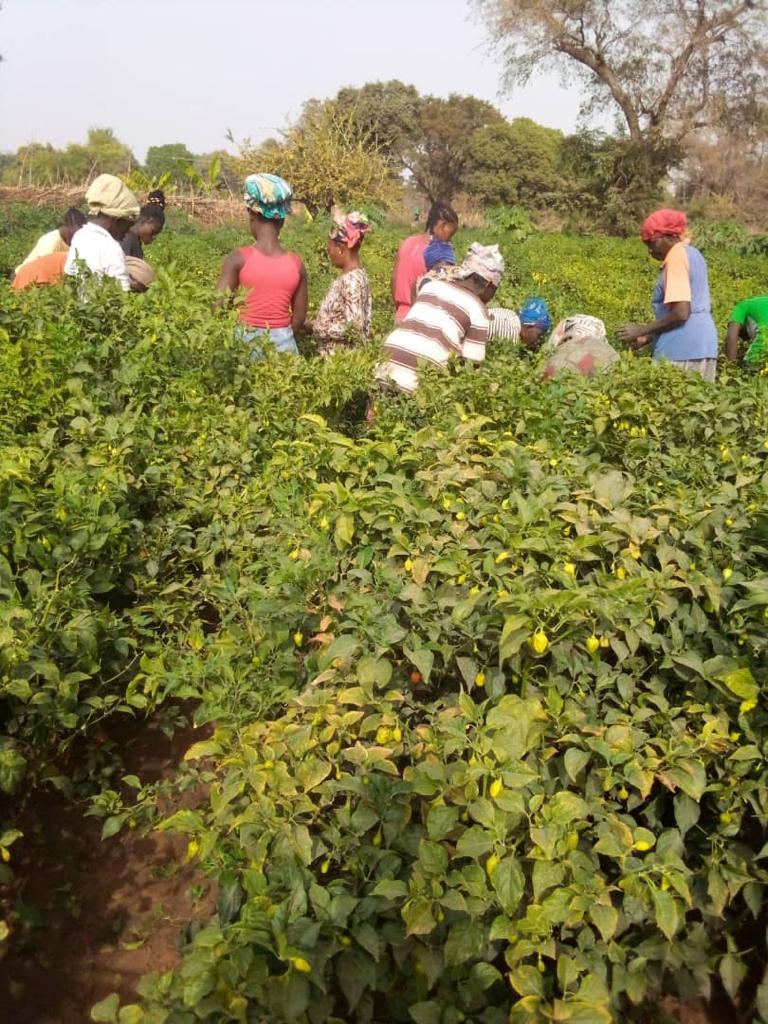Kuliyaa(UE/R), Nov. 26, GNA – Farmers in Ghana have been urged to diversify agricultural production to include all-year-round farming to boost the country’s food sufficiency thereby increasing food security needs of citizens.
Dr Raphael Ane Atanga, Research Team Lead of Monitoring and Evaluating Climate Communication Education (MECCE) case study project in Kuliyaa indicated that dry season gardening could serve as panacea to climate change if well implemented.
Dr Atanga who was presenting a research finding on the MECCE project over the weekend in Kuliyaa in the Kasena-Nankana West district said research is integral part of modern agriculture especially with the effects of climate change causing long droughts, floods and making agriculture unproductive.
The twelve-month research was undertaken by Dr Raphael Ane Atanga, Dr John Bosco Acharibasam, Dr Paul Achonga Kabah Kwode, Dr. Ranjan Datta, and Dr. Janet McVittie with support from MECCE, a research funding agency.
Dr Atanga said dry season agriculture supports families with food and income which is key to climate change adaptation education and enhances resiliency to drought through dry season gardening as an alternative source of livelihood.

He explained that through the project, the Kuliyaa women dry season farmers formed a community by creating communal plots and working together on the dry season agriculture.
Dr Atanga said community gardens provide an avenue for engaging in climate change adaptation education communication stressing that “dry-season gardens serve as pedagogical sites for rural women in the community of Kuliyaa”.
Dr Paul Achonga Kwode, MECCE research team member indicated that through the research, the women were empowered more than they would have been noting that the effects of climate change across the country is dire making crop production unsustainable stressing that “the youth should take advantage of dry season gardening and venture into agriculture to create jobs for themselves”
He said there was the need for technological investment into dry season farming to make it more cost productive and increase yields for farmers adding that “with the right investment, Ghanaians can produce tomatoes and other vegetables to meet the needs of citizens”
Dr Kwode observed that gender mix is an important feature in the community where women and men work together for a common good noting that the research supported women’s empowerment and cultural change.

Madam Kape Rebecca Alugivala, Queen Mother of Nakolo/Kuliyaa community said education on climate change has taught the women groups that farming can be done on any parcel of land provided the needed practices were adopted.
She indicated that as a results of dry season gardening, many parents in the community could take care of their wards in school and understood farming better saying that “we use composed
fertilizer to improve soil fertility as climate change has affected the nutritional value of the soil”.
Mr Anthony Adatu, Assemblyman for the Nakolo Electoral Area indicated that dry season farming is one of the major means of creating jobs for the people and engaging them productively instead of being used by insurgence to cause mayhem since the area shares border with Burkina Faso.
Mr Adatu who is also a Research Assistant to the project appealed to the government and other development partners to collaborate with the community to improve production as a model for commercial dry season gardening to supply the country with tomatoes and other nutritional vegetables.
Madam Bakite Kakwara, a beneficiary of the research project said the community has benefited immensely from the monthly knowledge sharing sessions with the research team and it has helped them improved their vegetable cultivation.
She said they now understood climate change better and were adopting early maturing crops for planting and urged the government to assist dry season farmers upscale production.
GNA